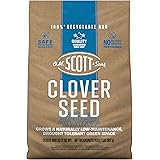zizin 2 Pack Galvanized Raised Garden Bed Metal Oval Raised Garden Beds Outdoor Planter Box for Vegetables (12x2x1FT, Silver)
15% OffLEETOLLA Elevate 32" Tall Raised Garden Bed Outdoor with Wheels & Shelf for Mobility, 400LBS Capacity, Anti-Rust Steel Planter Box for Vegetables/Herbs, Patio-Balcony-Backyard
27% OffComposting is a natural process that involves the decomposition of organic matter, such as food scraps and yard waste. During this process, bacteria, fungi, and other microorganisms break down these materials into smaller pieces, creating nutrient-rich soil amendment for your garden. Composting not only benefits your plants but also has positive effects on the environment. Here are some reasons why you should consider composting:
What is Composting and How Does it Work?
Composting is an eco-friendly way to dispose of household waste while producing nutrient-rich soil for your garden. It works by collecting organic material in a bin or pile where it can decompose naturally. The key ingredients for successful composting include carbon (brown) materials like leaves, shredded paper, and twigs, nitrogen (green) materials like fruit and vegetable scraps, coffee grounds, and grass clippings, air, water, and time. As the materials break down, they generate heat which helps to kill off pathogens and weed seeds. Turning the compost pile regularly helps to aerate the mixture and speed up the decomposing process.
The Benefits of Composting for Your Garden
Composting provides several benefits for your garden. First, it improves soil health by increasing its ability to retain moisture and nutrients. Second, it reduces erosion and runoff by improving soil structure. Third, it promotes plant growth by providing essential nutrients like nitrogen, phosphorus, and potassium. Fourth, it suppresses disease and pests by boosting the immune system of plants. Finally, it saves money by reducing the need for chemical fertilizers and pesticides.
Why Composting is Good for the Environment
Composting is good for the environment because it reduces greenhouse gas emissions and conserves resources. When organic material goes to landfills, it breaks down without oxygen and produces methane, a potent greenhouse gas. By composting instead, you prevent the release of methane and create a valuable resource for your garden. Additionally, composting reduces the amount of waste sent to landfills, conserving space and reducing pollution.

Getting Started with Composting at Home
Starting a home composting program is easy and rewarding. To get started, choose a location for your compost pile or bin that receives sunlight and is easily accessible. You will also need brown and green materials, a shovel or pitchfork, and a tarp or plastic sheet to cover the pile when necessary. Mix equal parts of browns and greens together, adding water as needed to keep the mixture moist but not soggy. Turn the pile regularly to aerate it and speed up the decomposing process. In about six months, you will have rich, nutritious soil for your garden.
In conclusion, composting is a simple yet effective way to reduce waste, promote sustainability, and improve soil health. With a little effort and attention, anyone can start composting at home and reap the many benefits it offers. So, why wait? Get started today!














































